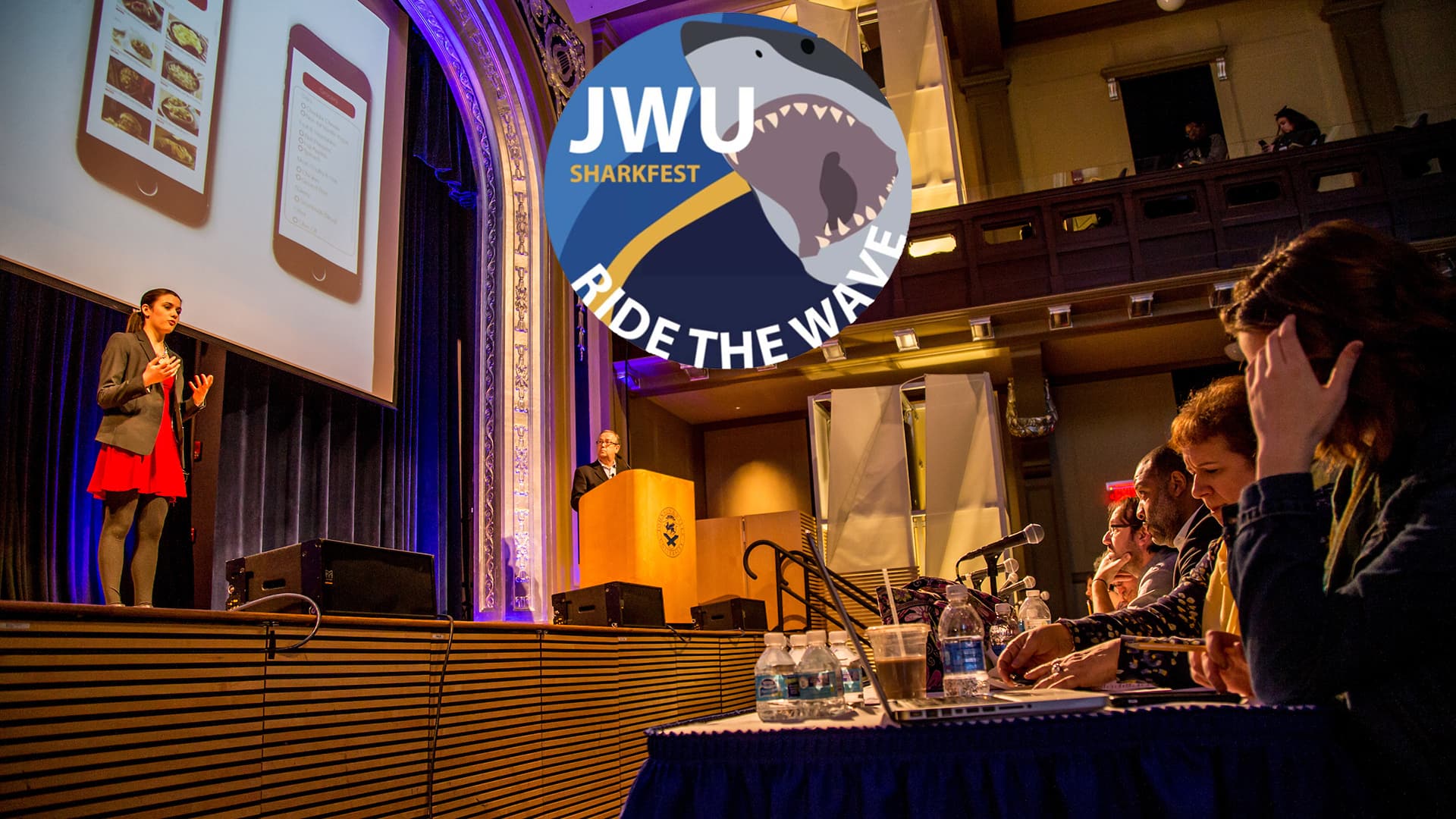6 Reasons to Pursue a Career in the Hospitality Industry
Associate Professor Katie Davin teaches courses in sales, marketing and hotel management in JWU’s College of Hospitality Management.
The hospitality business is a dynamic, fast-paced industry with a variety of flexible career options. While the industry slowed because of the pandemic, it is poised for a rebound. Here are 6 reasons why a career in the hospitality industry is a great choice.
1. The opportunities to grow in the hospitality industry are limitless.
I teach hospitality management now, but I started my career as a dishwasher in a diner. Then I worked as a cook and a server for a caterer. In the summers during college, I worked in food-and-beverage management at a beach club and then a country club. All of these hospitality jobs prepared me well for my first job out of college as a management trainee for Marriott International. And I rely on all of that experience for my classes.John Brich, vice president of SearchWide Global, said, “…it’s a HUGE industry. One that you can grow with. For example, I have worked in restaurants, hotels, convention and visitors bureaus and now executive search … all for one industry over a span of 20-plus years. There is more I can still get into if I want, cruise, convention center, attractions, not to mention the many different positions that fall within each sector … sales, marketing, revenue and operations.”
The hospitality industry has so much more to offer than working in operations, especially for those who stay in the business after their first jobs. Ambitious hospitality professionals may pursue positions in regional and corporate management, revenue management, finance, human resources, marketing and more. Hospitality operations are businesses, and they need capable leaders in each of the traditional business areas.
2. The hospitality industry needs you, your talent, and your fresh ideas.
For years, hospitality companies have faced an ongoing shortage of qualified managers and employees. That means plenty of opportunities for aspiring hospitality professionals. John Brich of SearchWide said that attracting talent is “an enormous issue and one that has been around even pre-pandemic. As employers and industry leaders, we continue to struggle to attract talent from the younger generation and other industries.”
Hospitality companies are interested in hiring innovative people who can share their creative ideas and invent new ways of taking care of customers. Bob Anderson, president of Star Performance Inc., said, “The new graduating students are willing to learn, are not stuck with old habits and can be molded into star performers.”

3. Experience is important, but it’s not difficult to get your foot in the door.
Anyone interested in a career in the hospitality industry should try it out — get in there and work at a hospitality business. It’s a chance to earn some money and find out if the industry is right for you. There are many entry-level positions in hospitality, in which new employees can gain skills, learn service systems, and work with customers. Summer can be an excellent time to score a job in hospitality, since that is vacation season and employers are looking for seasonal staff. Resorts, country clubs, theme parks, sports stadiums, caterers and tourist attractions are all great places to find seasonal employment.
For students studying hospitality, internships are an additional path for gaining experience beyond the entry level. In JWU’s College of Hospitality Management, we require internships, which give students opportunities to learn on the job and apply the knowledge that they have learned in their classes. We also encourage students to start getting experience in the industry as soon as possible, even before the internship, and to keep working in the industry in the summers. Multiple work experiences provide more than just skills; they also help the students figure out which jobs and which segments of the industry they like the most.
The perception that hospitality professionals spend their entire careers on their feet and working holidays is a myth.
4. The hospitality industry is on the verge of a strong rebound.
At the time of the publication of this article in the first quarter of 2021, executives and managers in hospitality companies are gearing up for a rapid increase in demand. They are bringing back furloughed employees and recruiting new staff in anticipation of a restless population hitting the road again this summer and fall.
The industry has already begun to bounce back. In February, employment in leisure and hospitality added 355,000 jobs, according to the US Bureau of Labor Statistics. In its 2021 Travel Outlook, the American Hotel & Lodging Association (AH&LA) reported that 56% of consumers say they expect to travel for leisure in 2021, which is about the same amount as in an average year. The long-term future of the hospitality industry is more promising, with leisure and business travel expected to return to pre-pandemic levels as soon as 2023.
5. It is possible to have a successful hospitality career and a healthy work-life balance.
The perception that hospitality professionals spend their entire careers on their feet and working holidays is a myth. Career hospitality professionals can and do balance work and life in a healthy way. It is true that many hospitality operations are open 24 hours a day. It is also true that hospitality employees and managers need to run those operations on the weekends and holidays. However, not all employees are required to work every weekend and every holiday. In addition, companies have become more generous with time off in recent years, because they have learned that employees with reasonable work schedules are more likely to stay with the company. More important, the further up the career ladder you climb, the more likely your schedule will become a more traditional weekday schedule. Regional managers and vice presidents work hard, but they do not have to open the restaurant for breakfast or run the overnight shift.

6. Hospitality is fun.
It may seem impossible to have fun at work, especially in a fast-paced industry that has demanding customers. However, hospitality is a fun, exciting, and dynamic business. “Hospitality is not an ‘at your desk’ typical day profession,” says Pat Kobela, regional director of sales for Chartwell Hotels. Every day is different in a hospitality operation. New events are happening, different guests are arriving and departing, and outside factors, such as weather and traffic, can affect customer demand every day.
The people who choose to work in hospitality tend to be wonderful colleagues, too. I left hospitality management to become an educator quite a few years ago, but I am still close with my friends from the hotel business. We had fun working together and built lifelong friendships with each other.
Explore JWU’s Unique Specialty Classrooms for Hospitality Students
Launch Bigelow Tea ClassroomLab
Bigelow Tea Classroom
Bistro 61



